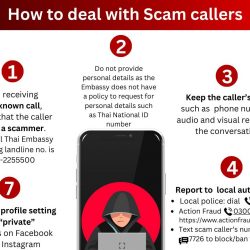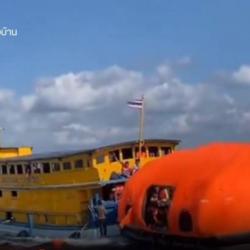Bangkok’s 20-baht metro dream in danger of derailing

Bangkok commuters’ dream of paying no more than 20 baht for a metro ride regardless of distance traveled still faces serious obstacles.
Even with the ruling Pheu Thai Party by their side, the dream continues to seem far-fetched. Currently, fares start at 12 baht and go as high as 47 baht per ride. If commuters use more than one metro line per trip, they also have to pay more.
Current fares
There are now 12 city lines in Greater Bangkok, stretching a total of 242.34 kilometers. Together, they cover not just the capital but also nearby provinces like Samut Prakan and Pathum Thani.
Developed at different times, these lines have separate systems along with different minimum and maximum fares. For example, Bangkok’s first and most popular metro route – the Green Line – charges from 17 baht per ride. Its maximum fare is 47 baht. The Red Line, meanwhile, has fares ranging from 12 to 42 baht.
Greater Bangkok’s urban train lines see about one million passengers per day and serve a metropolis of more than 10 million people.
Challenges & efforts
The 20-baht cap for metro fares was an election policy of the Pheu Thai Party, which now leads the government coalition. Tasked with implementing the cap is Transport Minister Suriya Juangroongruangkit.
“We have already capped the fare at 20 baht on some routes,” he said of the ongoing efforts.
Since October 16, a single ride on the 23-km Purple Line has cost no more than 20 baht. The route stretches from Khlong Bang Phai station to Tao Poon station in northwestern Bangkok.
The same maximum fare applies on the 41-km section of the Red Line between Taling Chan and Bang Sue.
“We will try to introduce the 20-baht fare cap on all other lines within the next two years,” Suriya said.
The Transport Ministry is now setting up a panel to negotiate with private companies that hold the concession to operate metro services.
Most concessionaires are willing to cooperate with the government, but serious discussions on the benefits and impacts of capping fares at 20 baht will be necessary, Suriya said.
“The best approach is to have the government as the concession owner and private companies as service providers,” he said of arrangements to ensure fares are lowered.
Lower fares, higher ridership
The number of passengers per day has risen by 16.87% since the fare cap, to 26,588 on the Red Line and 65,284 on the Purple Line, according to data for December 14.
However, the lower maximum fare means the government will likely have to subsidize the metro services to the tune of about 270 million baht per year.
Deputy Transport Minister Surapong Piayachote says the financial investment is justified given the benefits of the price cap. “A higher number of metro passengers means fewer people on streets,” he said.
The move is expected to lower road accidents, road casualties, and traffic pollution.
Surapong said the savings people make on travel expenses would give them more money to spend on other things, supporting the economy.
He added that public transport should not be run as a profit-making venture, but as a service that prioritizes public benefits.
Financial cost
Sumet Ongkittikul, research director for Transportation and Logistics Policy at the Thailand Development Research Institute (TDRI), believes the government’s move has benefits. However, he cautions that government funding required to cap fares at 20 baht could reach as high as 10 billion baht per year.
“Where will the government get the budget for full implementation?” he asked.
Sumet said the government should not absorb all the costs of the cap, which could rise even higher if electricity prices soar. He reckons a reasonable maximum fare would be 40-50 baht, a level that would require a government subsidy of about two billion baht per year.
Instead of slashing the top fare to 20 baht, the government should improve the fare structure, amend concession contracts, and design a new investment model while offering a partial subsidy, he advises.
“For example, the government should remove redundant entry charges for trips that cover more than one metro line,” he said.
Consumers’ voice
The Thailand Consumer Council (TCC) says capping the fare at 20 baht would be possible and sustainable if the government took over the infrastructure but left the responsibility for operating the metro service to private companies.
The infrastructure budget could be drawn from various sources, including auctions of “auspicious” number plates, and taxes on oil and vehicles. Road users should share responsibility for the whole transport system, according to the TCC.
Saree Aongsomwang, secretary general of the TCC, said feeder routes should also be made available to ensure that people living in Greater Bangkok can use metro services conveniently and safely at fair prices.
“The maximum metro fare should not be higher than 10% of the country’s daily minimum wage,” she said.
Green Line is biggest challenge
The Green Line, which sees more than 700,000 passengers a day, is the biggest challenge to the effort to impose the fare cap.
Bangkok Governor Chadchart Sittipunt has been talking about lowering the fares on the city’s first metro line since before he was elected. But after looking into the details, he said recently that the Green Line extensions must first start collecting fares.
Initially developed by BTSC, the Green Line has expanded with several extensions. Around 240,000 commuters have used the extension routes for free for the past few years.
“We will have to collect a 15-baht fare on the extension routes. The money collected will still be lower than what the Bangkok Metropolitan Administration has to pay,” he said, adding that fares are due to be collected from next month.
While 15 baht may seem meager, it will raise the maximum fare on the Green Line to 62 baht for passengers who travel the entire route from Samut Prakan to central Bangkok.
“Collecting fares for the extension route is reasonable,” Saree said. “But I think the Green Line’s maximum fare should not exceed 47 baht.”
Another potential hurdle to the 20-baht cap is the debt owed to BTSC for installation and operating costs on Green Line extension routes. BTSC is now demanding payment of 98.36 billion baht – excluding interest charges – from the government or the Bangkok Metropolitan Administration.
By Thai PBS World’s General Desk






